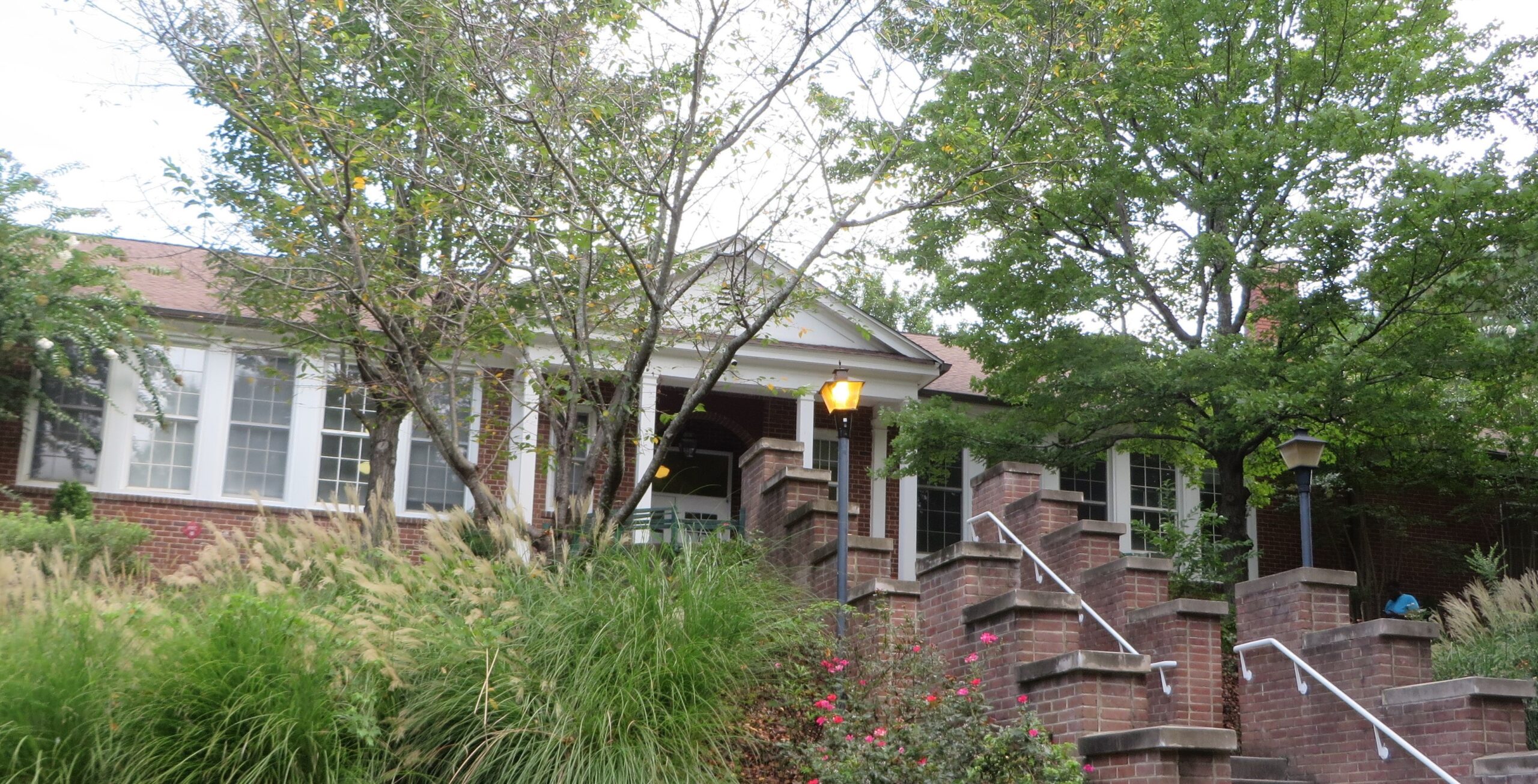Counseling Services For Kids Are Available But May Be Hard To Find During Pandemic

Covenant House Georgia is a shelter for young people ages 18 to 24 in Atlanta. It also provides counseling and education services to youths as young as 16.
Covenant House Georgia
When schools shut down last spring due to the coronavirus, some students couldn’t get services they depended on, including counseling.
Reports of child abuse dropped nationwide. The Georgia Division of Family and Children Services (DFCS) reported a 50% drop in reports of neglect and abuse in April after schools shifted to online learning.
Experts say that’s probably because teachers weren’t seeing students in person and, therefore, weren’t reporting suspected abuse as frequently.
“About 20% of all child abuse and neglect reports come from educators,” says Jill Cook, executive director of the American School Counselor Association.
Some students who are learning remotely have access to counselors virtually. But Cook says there’s no guarantee the conversation will be confidential.
“When you’re on a laptop, you don’t know who’s in the room with the student or who may be in the home,” she says. “So … a student who may be in trouble may not be in a place to be open and honest about what’s going on.”
Cook says some counselors have included hotline numbers in their email signatures as a way of reaching out to students. Some Atlanta school districts — including Fulton, Cobb and DeKalb counties and Atlanta Public Schools — have said counselors can make home visits to families in certain cases.
One Atlanta teenager who goes by “Shea” found help through an internet search.
“I was … unstable, jumping from family member to family member and just everything hit the fan, and I just looked up homeless shelters near me,” she says. “Covenant House was the first one up there on Google and they told me, ‘Come on ahead,’ and bring my stuff literally that night.”
Covenant House Georgia is a shelter for young people ages 18 to 24. Youths as young as 16 years old can participate in a day program that provides classes and counseling services. The seven-acre campus on Atlanta’s West Side is set up like a college. It has separate dorms for men and women, a cafeteria, classrooms, counseling services and even chickens.
“Right now, because of COVID, our census is a little lower than normal,” says Development Director Kellie Glenn. “We typically run anywhere between 10 to 100 young people. It just varies from night to night.”
However, Glenn says, when the pandemic began, all 31 Covenant House locations in the U.S. saw a surge of people in need.
“Our young people were losing their college dorms. They were losing their jobs and just living paycheck to paycheck,” she says.
Covenant House provides basic needs — a place to sleep, eat and shower — and it also offers counseling and health care services. Glenn says often residents have to deal with what’s led them to the shelter before they enroll in education and workforce development programs there.
“There’s a lot of trauma that our young people endure before they even end up homeless,” she says.
Glenn says that includes abuse, neglect, bullying or even being kicked out of their home. As a result, it may take a while for them to trust other people, says LaToya McBeth, the organization’s day services coordinator and AmeriCorps site supervisor.
“We essentially are strangers to our youth, and a lot of them have been neglected and abandoned by their own family members,” she says. “So the first thing is building trust and rapport, to help them understand that we are genuinely here to help [them].”
McBeth has also overseen Shea’s progress while she’s been at Covenant House.
“She has been committed from day one,” McBeth says. “When you’re unstable and you don’t have a place to sleep, it’s hard to put education as your priority because you’re trying to find out where you’re going to sleep tonight, ‘How am I going to eat tonight?’” she says. “But we take that barrier away when we provide stable housing for them, and I’m really proud of [Shea].”
Once she earns her GED, Shea wants to apply to college and eventually become a social worker.
“I want to be able to help troubled youth and [those] that are lost, that grew up with abandonment issues, not having full love because I was just like that,” she says. “I think it will be easier … because I will be able to tell them how they can turn it around because I did it.”







